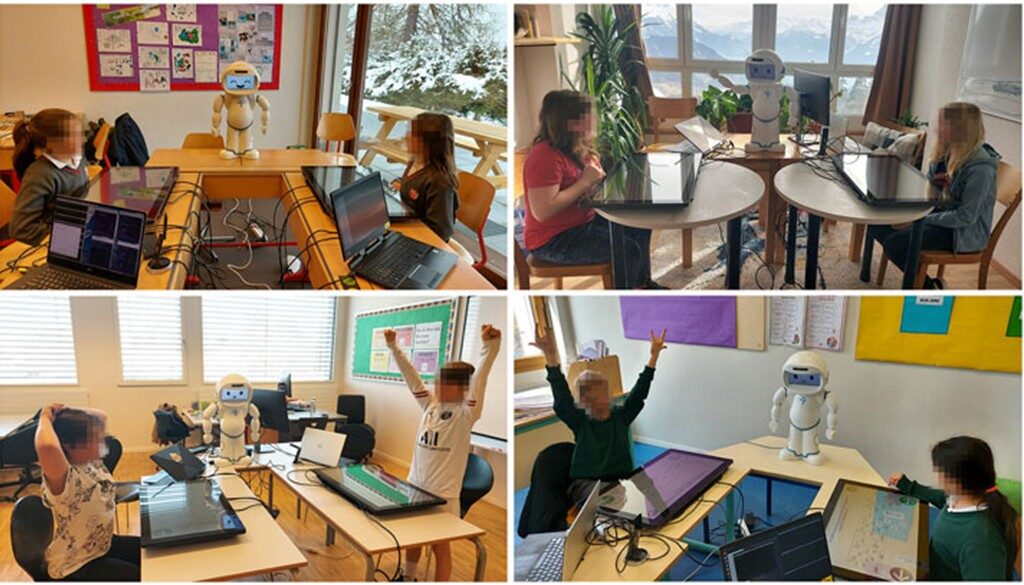
Abstract:
This study explores a novel approach to designing social educational robots that support student learning without requiring direct domain knowledge. Rather than acting as tutors or experts, the proposed robots—termed skilled ignorant peers—leverage behavioral cues to promote Productive Engagement (PE), a construct shown to correlate with learning outcomes. Two robot versions, Harry and Hermione, were evaluated in a user study with 136 students using a collaborative computational thinking platform. While Harry offered randomly timed behavioral suggestions, Hermione employed real-time PE assessments and student behavior profiles to determine both the timing and content of its interventions. Results showed that Harry induced higher PE scores correlated with learning, but its interventions were not directly responsible for these gains. In contrast, Hermione’s well-timed interventions improved perceived robot competence and positively influenced PE, but did not significantly predict learning outcomes. These findings highlight the importance of timing and behavioral awareness in social robot interventions and propose a shift in robot design—moving from domain-expert roles toward engagement-driven peer roles that adapt to students’ learning behaviors.
Reference:
Front. Robot. AI, 22 August 2024, Sec. Human-Robot Interaction, Volume 11 – 2024 | https://doi.org/10.3389/frobt.2024.1385780
https://www.frontiersin.org/journals/robotics-and-ai/articles/10.3389/frobt.2024.1385780/full